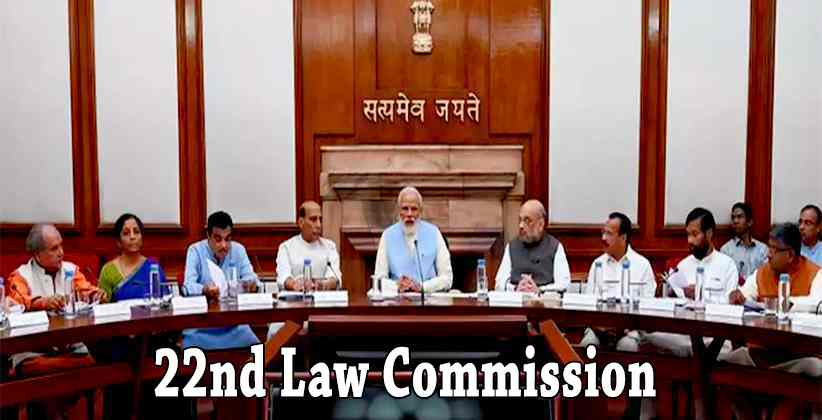Manas Dasgupta
NEW DELHI, June 14: The 22nd Law Commission of India on Wednesday sought fresh suggestions from various stakeholders, including public and religious organisations, on the Uniform Civil Code (UCC).
The previous 21st Law Commission had also examined the subject and solicited the views of stakeholders through its appeal. The previous commission had also issued a consultation paper on “Reforms of Family Law” in August 2018.
Pursuant to the same, overwhelming responses have been received by the commission, it said in a communiqué. “Since more than three years have lapsed from the date of issuance of the said consultation paper, bearing in mind the relevance and importance of the subject and also the various court orders on the subject, the 22nd Law Commission considered it expedient to deliberate afresh over the subject,” the panel said.
Those willing to share their views, suggestions on the UCC can write to the commission through the email of the member-secretary or via its website. The 21st Law Commission in August, 2018, led by former Supreme Court judge Justice B.S. Chauhan — had said the UCC was “neither necessary nor desirable at this stage” in the country. In a 185-page consultation paper on the subject, the commission had emphasised that secularism could not contradict the plurality prevalent in the country. “Cultural diversity cannot be compromised to the extent that our urge for uniformity itself becomes a reason for threat to the territorial integrity of the nation,” it had said.
The commission added that a unified nation did not necessarily need to have “uniformity” and that ‘‘efforts have to be made to reconcile our diversity with universal and indisputable arguments on human rights.’‘ Differences did not always imply discrimination in a robust democracy, the government’s top law advisory body said, even while suggesting that certain measures on marriage and divorce should be uniformly accepted in the personal laws of all religions.
The Uniform Civil Code had come back in the news (UCC) last year when the Union Home Minister Amit Shah announced that it would be implemented if the BJP returned to power in Himachal Pradesh and the Gujarat Home Minister Harsh Sanghavi declared that the state would constitute a committee headed by a retired High Court judge to explore the possibility of implementing it.
The issue has been simmering since May 2019 when BJP member Ashwini Kumar Upadhyay filed a petition in the Delhi High Court seeking directions to the Union of India to frame a UCC. Obviously, Upadhyay was trying to force the BJP into honouring the promises made in its 2014 and 2019 election manifestoes that a UCC would be drafted “drawing upon the best traditions and harmonizing them with the modern times.”
The legal experts, however, feel that implementing such a code in India was very difficult and consequently the response of the BJP-led Union government has been confusingly different from the rhetoric of the BJP. In October 2022 the Law Ministry filed an affidavit telling the Supreme Court that it could not direct Parliament to enact any law, and therefore, all public interest litigations (PILs) on a UCC must be dismissed with costs for being non-maintainable.
The affidavit also informed the court that the issue of a UCC would be placed before the 22nd Law Commission for consideration, and after receiving its report the matter would be examined in consultation with various stakeholders involved.
In June 2016 the Ministry of Law and Justice had asked the previous Law Commission to “examine matters in relation to uniform civil code”, in response to which the 21st Commission presented a 185-page report in August 2018 titled “Consultation Paper on Reform of Family Law” wherein it was made clear that a UCC “is neither necessary nor desirable at this stage”.
Certainly, things could not have changed so drastically between August 2018 and October 2022 as to warrant another examination of “matters in relation to uniform civil code”. Besides, the 22nd Commission was constituted only in November, last year, more than two and a half years after it was notified in February 2020.

